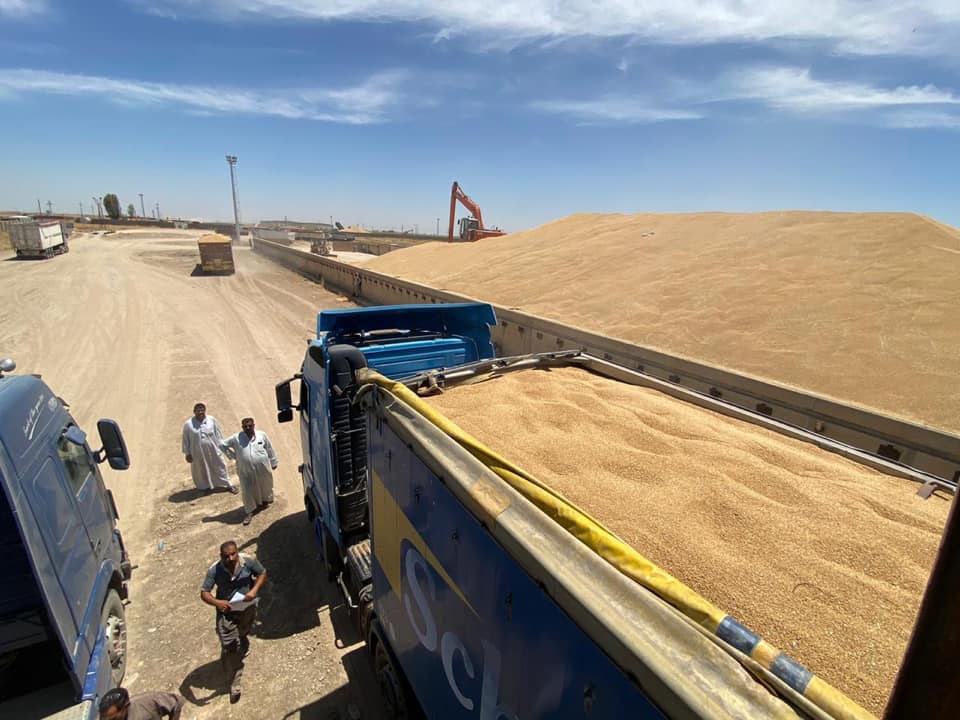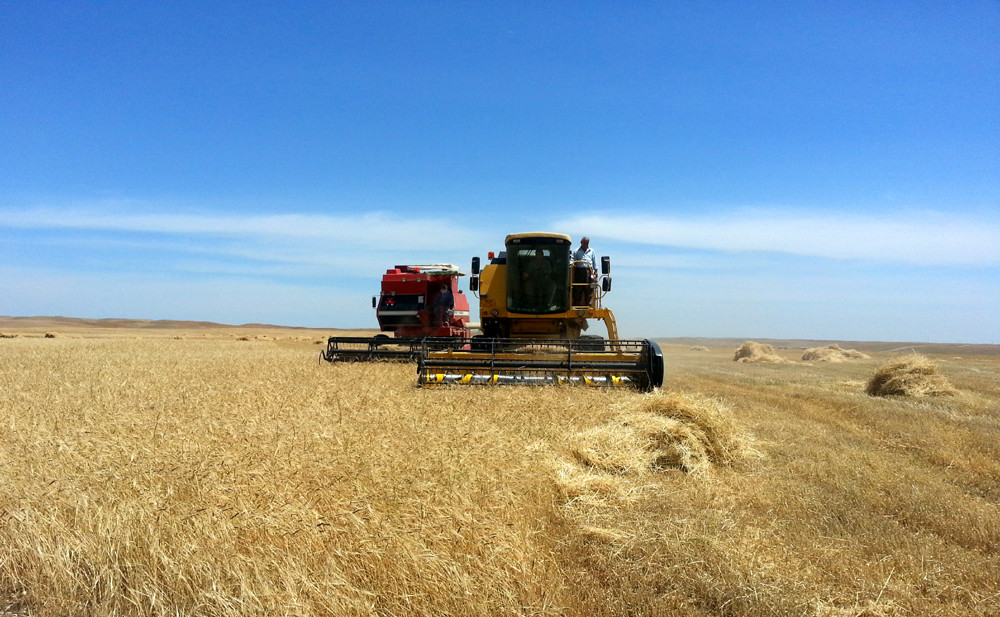Some of Kirkuk's farmers fear that they will incur heavy losses and won’t be able to cultivate their lands due to the doubling of the prices of agricultural seeds, chemicals and fertilizers following a series of measures taken by the Iraqi federal government.
In the past months, Baghdad has decided to stop importing seeds, chemical fertilizers and many agricultural supplies, and entrust this to the private sector.
Abu Muhammad, who owns agricultural land in the district of Taza, south of Kirkuk, says the procedures by the government led to double the costs of these supplies.
"Previously, the government used to sell one ton of fertilizer to farmers for 450 to 500 thousand Iraqi Dinars (USD300-338), but the farmer is now forced to buy it in the market for a million dinars ($675), and sometimes more."
The government used to import agricultural supplies on its own and sell it to farmers annually at subsidized prices.
The northern oil rich and multiethnic city of Kirkuk has 1.5 billion square meters of agricultural farmlands, out of which 0.9 billion is allocated for wheat, statistics of directorate of Kirkuk agriculture shows in 2020.
Kirkuk, May 2020: Two farmers in a village of Shiwan sub-district of Kirkuk examine the damage their crops sustained as a result of hail and heavy rain. KirkukNow
“The government’s measures were a big blow to the farmers instead of helping them,” said Abu Muhammad, who complained these supplies are currently imported by a number of companies in a poor quality.
Chemical fertilizers are used with wheat seeds by special equipment to improve production.
Ahmed Ali, a farmer from Kirkuk, is desperate that the government is not supporting the farmers by providing their needs.
Ali says that the government does not support them like before. Their duty has become more difficult compared to previous years, at a time the prices of their crops in the markets are declining while the cost of agricultural supplies is increasing.
The price of one ton of wheat crop was sold up to 2014 at 850,000 Iraqi Dinars as the government was supporting farmers, but now its price has fallen to 400,000 only.
Farmers use chemical fertilizers in their farmlands twice a year, while currently they consider the classic method of relying on organic fertilizers and animal waste to boost crops.
Absence of state support and poor rainfall has sharply dropped down production of crops. Kirkuk meteorology said total rain in 2021 was only 104mm compared to 283mm in 2020 and 535mm in 2019.
Directorate general for agriculture in Kiukuk has set an annual plan to plant one million donums all over the province yet only 700,000 donums were cultivated, Zuher Ali, director of Kirkuk agriculture told KirkukNow in April. Ali expected 350,000 tons of crops compared to over 600,000 tons last year.

Kirkuk, May 2020: The process of receiving grain crops from farmers in Kirkuk Silo. Iraqi Ministry of Agriculture
For his part, Mahmoud Al-Ezzi, head of the Farmers Union in Kirkuk, says that the Supreme Agricultural Council is behind these problems, stressing the need for appropriate solutions through the government's guarantee of providing fertilizers and other agricultural requirements to farmers as before.
The Supreme Agricultural Council in Iraq consists the ministries of (Finance, Agriculture, Trade, Water Resources and Planning) and the Council decides on the export of products and the import of agricultural requirements.
Al-Ezzi said “what is happening to the farmers is unacceptable because their share of chemical fertilizers has been reduced to only five kilograms per acre, while it was supposed to be 45 kilograms, in addition to the lack of support for farmers, which led to rise in the prices of supplies, including chemical fertilizers which passed double.”
The head of the farmers says that it is necessary for the government to increase the prices of wheat, barley and other crops for the farmers in return for the rise in the prices of fertilizers and other agricultural requirements.
The Iraqi Ministry of Agriculture pointed out in a statement published weeks ago that there are vigorous efforts to ensure that farmers continue their work by securing the required quantities of fertilizers and other supplies, without disclosing the details of those endeavors.





